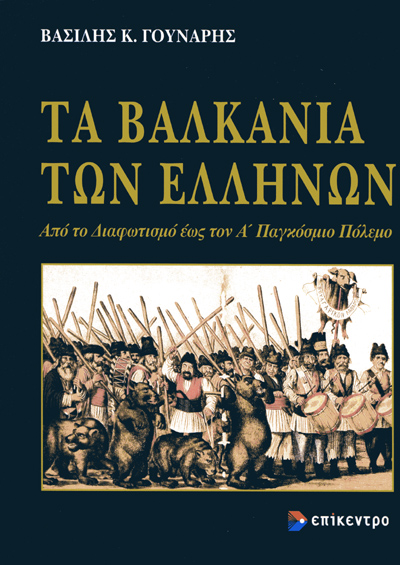
The word “Balkans” and all of its derivates flooded the Greek public after the fall of communism in Eastern Europe. After many decades spent in cold interrelations, the Balkans had to be studied and to create friendly relationships with their neighbors. On the Balkans, Greece takes up one very favorable position.
The building of the new identity went through many different stages, in which we have to ask the key question – are we or are we not “Balkanians”? From the contacts with other nations, some new stereotypical images were reborn, which are not that good…
The writer makes a very detailed research from biographical sources from the end of the 18th century till the First World War – texts from the Renaissance, textbooks, newspapers and historical books from the 19th century, novels, poems, as well as caricatures from the beginning of the 20th century.
In the book, we can find a chronological research of the ideological connection between Greece and the other Balkans nations. In the first three chapters, the reader can track what were the current topics and how they change during the different periods in political and diplomatic contexts. The fourth chapter discusses national sovereignty topic from Greek point of view. This topic popped up to the surface and interests the public opinion in Greece until today.
The next two chapters separately tell eight stories about a pathological love and hate. Some of them talk about the development of two-sided relationships and others about the things, which connect or destroy the relationships of Greece with more than one nation.
Mr. Gounaris makes a complete comparison between Greece and other Balkan countries on topics of culture, economics, state system and management. As an addition to the text come some hard to find texts, which are used as sources.
Professor Tanos Veremis, the former minister of education Marieta Yanakou and the ambassador Evangelos Kofos will be present at the book presentation tonight. The author of the book “Balkans of the Greeks – from Enlightenment to the First World War,” Vasilis Gounaris is a contemporary history professor in the History and Archeology department of the Aristotle Thessaloniki University.